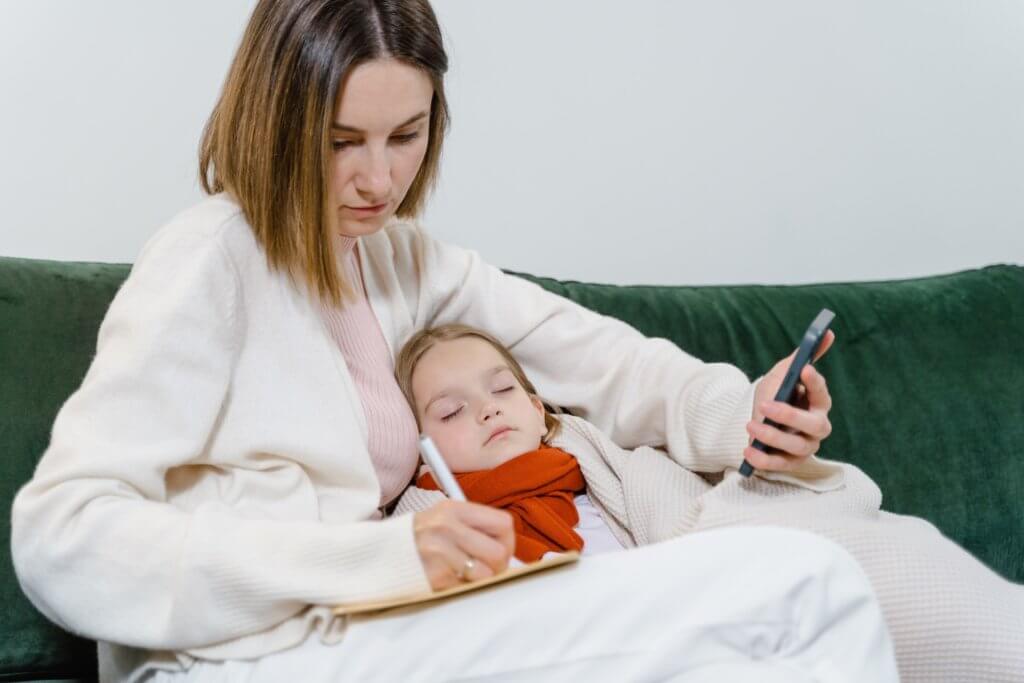Sickness might be hard on children, but it is equally hard on parents. Being sick means no play time and staying in bed, which can frustrate your child. Not to mention the continuous fatigue and discomfort they don’t know how to deal with. As for parents, taking care of your sick child can be physically tasking, but watching them suffer can also be emotionally taxing.
Like most parents, you may have experienced anxiety when your usually happy child becomes gloomy and listless after getting sick. But do not panic. We are enlisting practical tips on how to ensure optimal care for your sick child:
- Keep Things Light
Preschoolers and toddlers can handle discomfort best if they have a distraction. When your child is sick, the most effective ways to relieve stress are usually the ones that do not involve much effort. For example, you can get a few laughs from your child by making silly faces, telling them jokes, and just making them laugh. You may also try more subdued fun activities like basic jigsaw puzzles, memory games, or board games that could be played from the comfort of the sofa.
Make sure they’re not doing anything that tires them too much. For example, if your child has Erb’s palsy, they must keep physical labor at a minimum because of weak muscles.
P.S: Did you know that a reputable Erb’s palsy lawyer can help you obtain compensation from the medical team that failed to provide adequate care for you during your pregnancy? If you have been struggling financially, look into it.

Photo by Tima Miroshnichenko.
- Pay Attention to the Diet
Do not listen to someone who tells you that you should “starve a cold and nourish a fever.” If your child is sick, they will need a healthy diet. Grandma’s soup recipes could do wonders when relieving the symptoms of various ailments.
Chicken soup is a good source of fluids and vitamins that can help your child’s immune system to fight illness. A cup of herbal tea with a squirt of lemon and a dab of honey can heal a sore throat.
You might already have a slew of natural treatments lying around your house that you could give a shot. For example, honey is recommended for children ages 1 and up as a remedy for coughs and sore throats. But you also need to know when to get proper medical treatment. Call the doctor if your child is frequently vomiting or if diarrhea continues for more than a few days.
Related read – On Motherhood & Creativity: How does having kids affect your work? 4 creative women share their stories.
- Keep Your Child at Ease
For unwell children, making them feel at ease is vital to looking after them. Keeping up with many sounds or being exposed to too much light and smell could intensify several diseases. Instead, provide your child with a peaceful space to sleep, such as their bedroom with the door closed. This enables the rest of your children to watch television without bothering the sick sibling.
Additionally, it is essential to maintain a favorable temperature within the home. Your child may experience extreme temperature swings when they have a fever. If possible, raise the temperature in your kid’s bedroom to a more tolerable level for the entire household.
To aid in the outflow of mucus, prop your child’s head up. Consider delaying tasks around the house, such as painting, that could produce airborne toxins. Avoid using tobacco products and perfumes as they irritate your child’s respiratory system. For some fresh air, do not forget to open the windows.
- Be Careful with Over-the-Counter Medicines
Sometimes, your child will need more aid than just natural therapies. That is where over-the-counter (OTC) medicines come into play. However, before using any OTC medications, make an appointment with your primary care physician. It is because many OTC drugs might have serious adverse effects on children.
Due to potentially fatal adverse effects, kids under six should not be given OTC cough and cold medications. Several OTC drugs recommended for cold contain acetaminophen. Giving your kid acetaminophen and one of these medications (Tylenol or generic) simultaneously would result in a double dose.
- Give Emotional Support
When children are sick, their symptoms might occasionally make them feel anxious or upset. In that case, giving your kid a little extra attention and snuggling can go a long way. If you are worried, keep your emotions under wraps because your child will pick up on them. Instead, you may narrow your attention to giving your child a back rub or fetching them a new drink. You can read a book to your child, sing songs, or simply hug them until they sleep.
Conclusion
Your sick child might have you running around the house, but remember that undivided attention is also a good treatment. If you can, try to alter your schedule as much as possible to meet your kid’s needs. Caring for a sick child can be emotionally and physically draining for a parent. These five suggestions can help you blow off steam and fast-track your child’s recovery.





